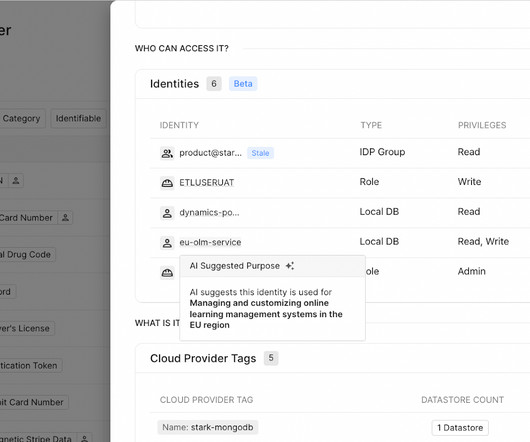Knock, Knock; Who’s There? – IoT Device Identification & Data Integrity Is No Joke
Thales Cloud Protection & Licensing
JULY 12, 2018
The Internet of Things (IoT) is very crowded. Connected things are what make the IoT – sensors, cameras, wearable electronics, medical devices, automatic controls. But making the IoT work requires trust in the devices and the data they collect. The IoT is not making the job of securing networks any easier.












Let's personalize your content